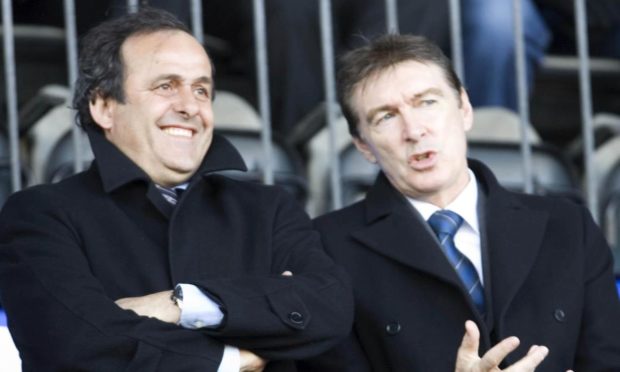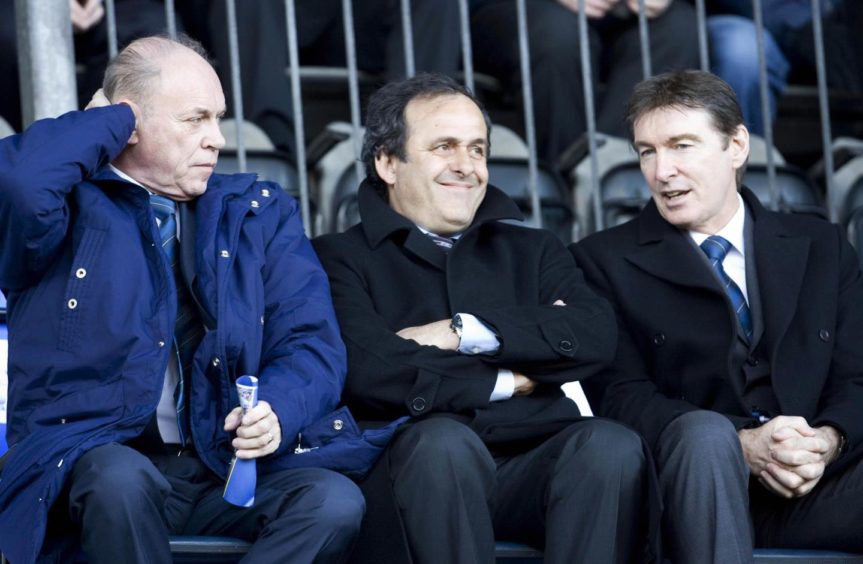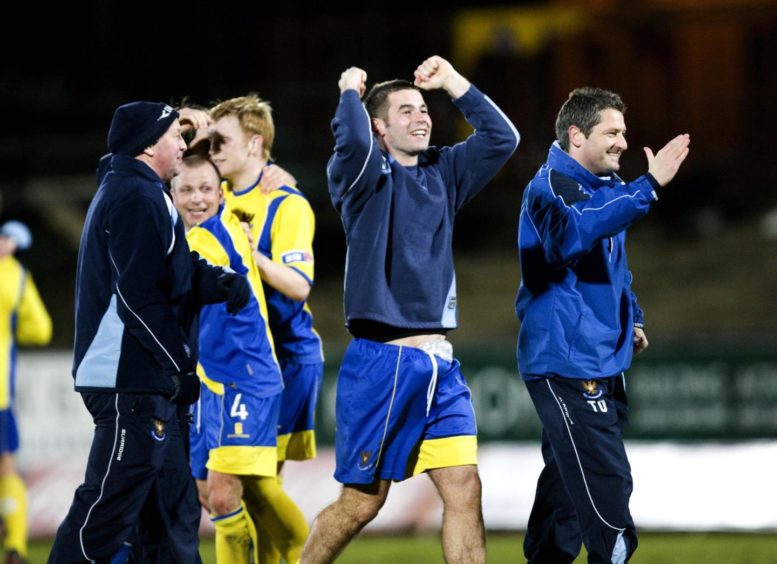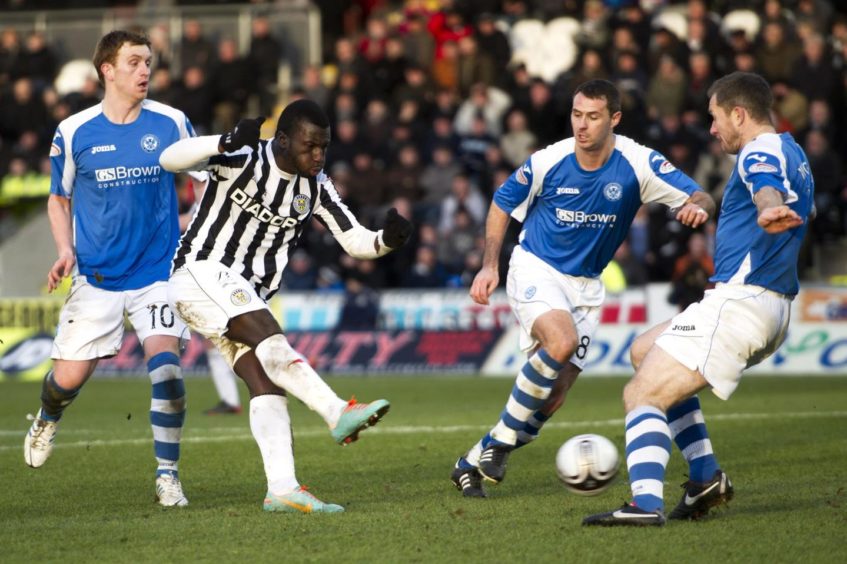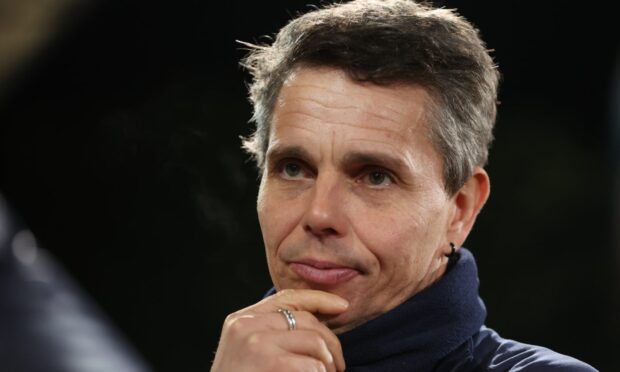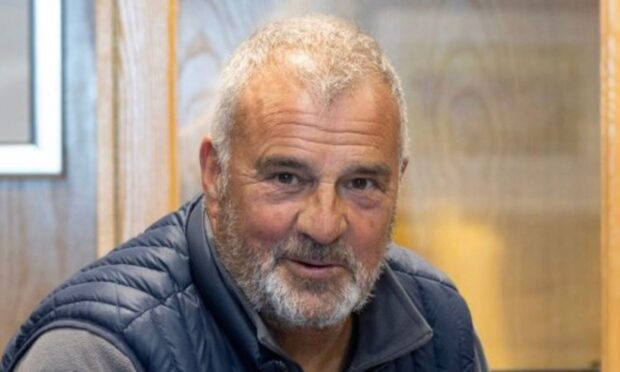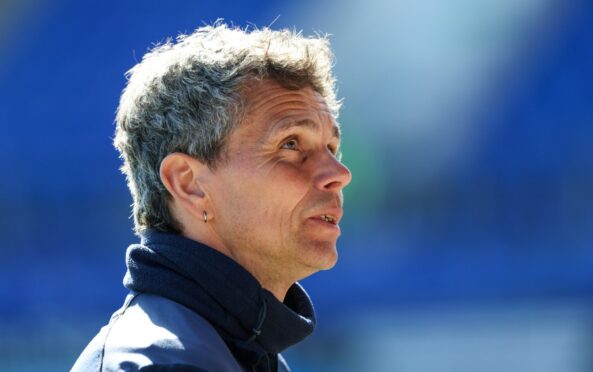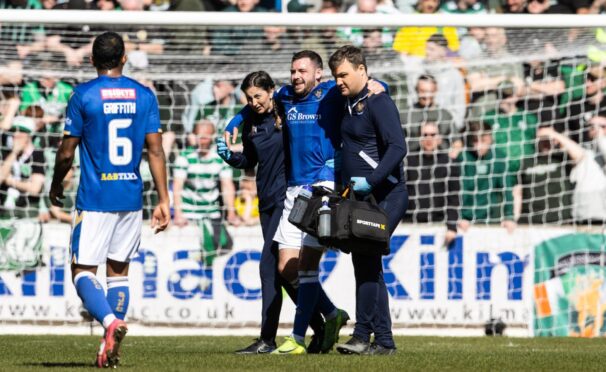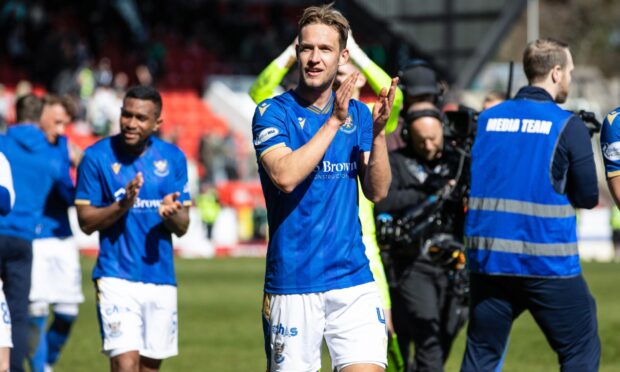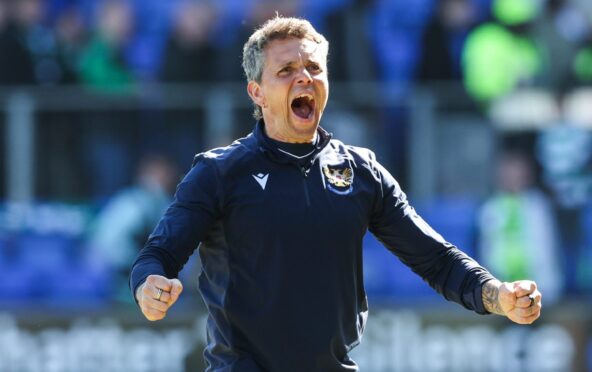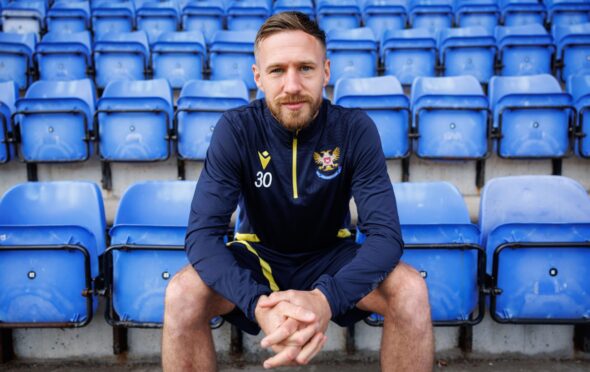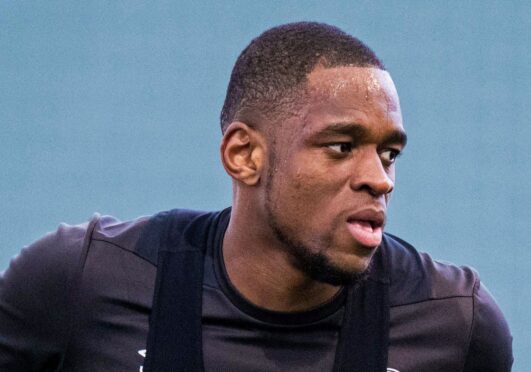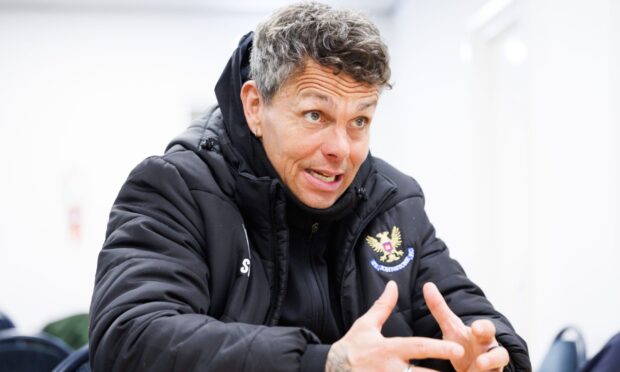St Johnstone and St Mirren have only met each other three times in the Scottish Cup, four if you include a replay.
Eric Nicolson looks back on the previous clashes of the Saints in Scotland’s oldest and most prestigious knock-out tournament.
It’s a story of a Paisley mutual appreciation society, the red carpet getting rolled out at McDiarmid Park, a half-hour goal-fest and Callum Davidson’s last cup tie as a player.
February 6, 1904 – St Mirren 4-0 St Johnstone
It might not have been a scoreline to put a club which had only been in existence for two decades on the Scottish football map but the first match between these sides in any competition was a historic and auspicious occasion nonetheless.
Saints had never before reached the second round stage of the Scottish Cup.
In the Perthshire Advertiser, there was certainly no attempt to downplay the fixture.
“Tomorrow will be a great day in the annals of St Johnstone FC,” their preview started. “When they gather together their strongest forces and make one of those infrequent incursions into ‘foreign’ parts to wage wars against enemies of more formidable calibre than they are accustomed to meet in their everyday Northern League battles.
“Their latter contests remind one rather of the feudal conflicts between local clans in the olden times, but this week they are to journey forth on an invasion, upon the issue of which much of importance depends.”
Stirring stuff indeed.
St Johnstone would have wanted to embark on this feudal conflict with a full battalion, mind you.
Andrew Moir, the team’s “pivot”, was unwell and didn’t board the “special saloon” attached to the 12.24pm train out of Perth, transporting them and a handful of supporters west with “cheerful countenances”.
The Perth Saints, “looking very fit in their pretty stripes”, lost a couple of late goals to put a harsh reflection on their big day at Love Street but their football was appreciated by the locals, it appeared.
“The Paisley crowd is a very impartial one,” the PA match report concluded. “And it is pleasing to record that the efforts of the Saints were as heartily applauded as those of the homesters, and the unanimous expression among the spectators was that the result did not fully represent the merits of the teams.”
Safe to say, a 4-0 final score either way at Hampden is unlikely to provoke a similar all Saints together love-in on social media on Sunday night.
March 8, 2008 – St Johnstone 1-1 St Mirren. Replay March 18 – St Mirren 1-3 St Johnstone.
It wasn’t until over a century later that these two clubs were drawn together again in the Scottish Cup.
And the great and the good (well, we thought so at the time) came to watch it.
It wasn’t a yearning to see some blood and thunder Scottish sport in the raw that brought them to the Fair City, however.
The duo were staying 20 minutes down the road at the Gleneagles Hotel for the International Football Associations’ Board meeting that week.
Taking in a St Johnstone game and sampling some McDiarmid boardroom hospitality was an added bonus.
On the pitch, Andy Dorman cancelled out a Liam Craig penalty, forcing a Paisley replay.
Platini and co showed no desire to delay their departures out of Scotland to see the tie settled in St Johnstone’s favour.
Three goals in the first half-hour ensured a comfortable night for Derek McInnes’s team.
Rocco Quinn, Andy Jackson and then Peter MacDonald were on the scoresheet, with the latter describing the strikes as “screamers” one and all.
“Rocco received a diagonal 50-60 yard cross and hit his volley with the side of his foot into the top corner,” MacDonald recalled.
“Then for Jacko’s goal I’d come short for the ball and, just as I’m about to receive it, he’s given me a shout.
“I jumped over it and he was clean through before finishing into the top corner.
“I remember pinning the centre-half for my goal. It was a swivel and curled shot into the corner from 25 yards. I remember that clear as day.
“And I remember the night out after it! It was just in Glasgow with six or seven of us enjoying a good result.
“We had a good strike-force and a good team.”
Had Saints not lost to Rangers in a penalty shoot-out in the subsequent semi-final, that win would be enshrined in club folklore. And maybe another MacDonald-led Glasgow night out would be too.
February 2, 2013 – St Mirren 2-0 St Johnstone
This fifth round tie turned out to be the last Saints played in the Scottish Cup before their famous 2013/14 campaign.
The player turnaround was drastic from one season to the next.
Only four men who started this game were in the 11 that defeated Dundee United in the following year’s final – Alan Mannus, Dave Mackay, Frazer Wright and Steven MacLean.
The game itself certainly won’t have stuck in many people’s memories (Esmael Concalves scored two goals shortly after half-time to settle the contest).
One of the few things of interest, looking back, is that both managers for this weekend’s semi-final were involved as players then – Jim Goodwin, still with a few dark hairs, started and Davidson was an unused substitute.
It would be the last time the Perth boss was involved in a Scottish Cup tie as a player.
